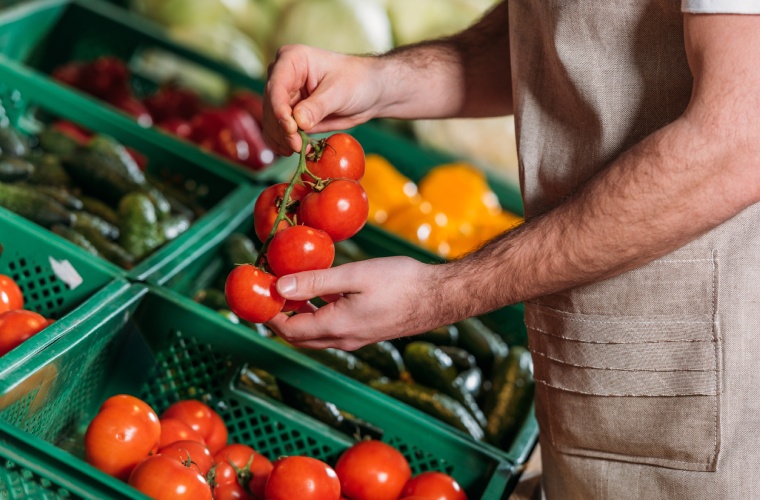Avoiding tobacco use and increasing access to nutritious foods are two of the biggest factors that can help prevent noncommunicable disease on a global level. This year’s World No Tobacco Day theme, ‘Grow Food, Not Tobacco’, focuses on raising awareness of the alternative opportunities for tobacco farmers and encouraging them to change to sustainable and nutritious crops. It also aims to shine a light on the tobacco industry’s efforts to interfere with efforts to transition tobacco farmers to alternative crops.
Take for example, the tobacco industry’s use of economic myths and misinformation in Kenya to counter adoption and implementation of tobacco control measures. Whereas tobacco farming has declined by about 16% since 2010, the tobacco industry tries to falsely portray itself as a good corporate citizen making a significant contribution to the country’s economy. The tobacco industry has a long history of lodging legal challenges and interfering with laws and initiatives that work towards making communities free from the negative health, social and financial impacts of tobacco-related illnesses. So, it comes as no surprise that the industry would seek to protect its interests at the expense of healthy food production.
The parallels between food industry interference and tobacco industry interference are strong. Food industry interference is a recognised barrier to the implementation of measures that are designed to prevent diet-related noncommunicable diseases, such as cancer, diabetes and cardiovascular diseases. While there are no binding global obligations in place for food industry interference, there are lessons to be learned from the experience of those working in tobacco control across the world.

Thinking through an appropriate legal framework and conflict of interest guidelines are crucial to this. Conflict of interest rules can minimise interference and protect the development and implementation of public health policies from the food industry. In 2021, the World Cancer Research Fund (WCRF) highlighted the “alarming” standards for that year’s UN Food Systems summit, where food industry actors were prominent and able to influence discussions “to meet their business objectives and greenwash their reputations.” The WCRF pointed out that this engagement was of a significantly lower standard than other high-level United Nations events. This is specifically what the Guidelines for implementation of Article 5.3 of the WHO Framework Convention on Tobacco Control (WHO FCTC), which help Parties to limit interactions with the tobacco industry and reject partnerships with the industry, are designed to combat.
Empowering governments to feel confident in using the law also has a significant bearing on the success of such measures. Take for example, governments seeking to implement front-of-pack nutrition labelling. There is much to be learned from the experience of countries which have implemented tobacco plain packaging laws, and were able to defeat subsequent legal challenges from the tobacco industry. Australia was the first country in the world to introduce plain packaging for tobacco products, and in doing so had three legal challenges brought against the laws including at the World Trade Organization, and at the High Court by four major multinational tobacco companies operating in Australia. Each ruling came back in favour of Australia’s plain packaging laws. Legal challenges to plain packaging in the United Kingdom, France, Ireland, and Norway were also dismissed. Despite the many legal challenges, at least 26 countries have followed Australia’s lead to date and implemented their own plain packaging laws. The decisive action shown in these cases is a blueprint for governments seeking to implement similar initiatives – like nutritional labelling – and can bolster the confidence of those working to implement such laws.
While these examples draw on the similarities between tobacco industry interference and food industry interference, there are nuances with each that mean a one size fits all approach is not appropriate, or effective, when introducing new laws. Another key element to consider when drafting such laws is defining industry engagement, and different types of industry actors. This is straightforward in tobacco control, and no engagement with the tobacco industry is permitted. However, food is a necessary commodity, which means a more complex approach which defines the level of engagement, and who to engage with, is necessary. This hasn’t yet been done successfully in any international frameworks, tools or guidelines, but is vital to the progress of a healthy food environment. While no engagement at all is not feasible or practical, the food industry should be very strictly regulated, with an international legal framework, similar to Article 5.3 of the WHO FCTC, which clearly addresses any grey areas.
While there is still a long way to go in the fight for healthier food systems, putting in place protections from industries that seek to profit off illness and disease is a first step. It’s also a fight that has been fought- and won- before, and by learning from the lessons of those working in tobacco control, those working to promote healthy diets have much to gain.